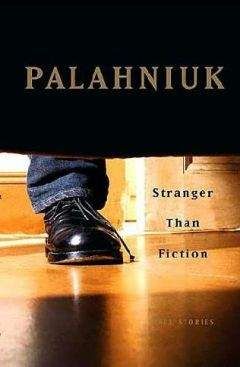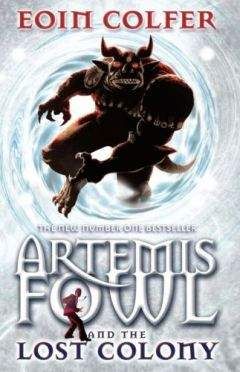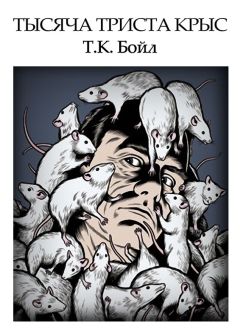Deerskin - Robin McKinley
But as the season deepened she found herself less at peace than ever, roaming farther and farther away from the villages, with a buzzing in her head like the iron-filing sensation, only without the comfort of a direction to clarify it. At last she found herself in the wilder hilly region on the outskirts of King Goldhouse the Seventeenth's realm-the northern boundary where she had come down last spring.
She stood, surrounded by dogs, staring up the tree-covered slopes, and in herself a sudden great longing....
She turned abruptly, and began a determined trot south and west, to Fiena's village and their home-hill, composing a half-acknowledged list in her mind. Onions; apples; potatoes; squash; herbs, both medicinal and for cooking; blankets; a bucket.
A comb. A lamp. Something to keep the rain off. An axe. With six more dogs to think of, more than would be comfortable for her alone to carry. She cast an appraising look at her proud sleek hunting hounds.
Ash felt her dignity very much compromised by the makeshift harness Lissar put together, useful but unbeautiful as it was. But, as ever, she was willing to perform any task Lissar asked of her so long as it was plain what the task was. She suffered having the harness put on, but once she realized that when the pack was in place it was heavy, she set about getting back out of it again. Lissar contrived to dissuade her of this and Ash reluctantly accepted the inevitable, standing in her characteristic pose of disgruntlement with her back humped, her feet bunched together, and her head low and outthrust and flat-eared, swinging back and forth to keep Lissar pinned by her reproachful gaze.
Lissar had accumulated much of the gear she wanted to take already at her camp; for the rest, after some anxious thought, she called in various favors from several different villages, that none need feel preyed upon-nor any guess her plans. Then she had had to devise a harness, and sew it together; this all had taken time, while the thrumming in her head went on, persistently, almost petulantly, as if it would snatch the needle, thread, and mismatched straps out of her hands and say, Go now. The puppies, who felt that so long as they kept Lissar under their eyes they had nothing to fear, had little reaction to Lissar's new activities. Ash, who had known her longer, was suspicious of the bits of leather and stiff cloth Lissar dealt with so painstakingly; but, her look said, when Lissar had hung the first results on her, she had never guessed anything as dire as this.
The puppies had watched the drama of the harnessing of Ash very intently, so when Lissar turned to Ob with another harness, he dropped his head and tail but did not protest. If the perfect Ash permitted this and the adored Lissar asked it then he could not possibly refuse. She had made only three harnesses, to begin with, for the three strongest dogs-Pur, still the biggest, was the third-and distributed her bundles among them, keeping the most awkward items, including the bucket and axe, for herself. But then the other dogs were jealous of the special favor of the harnesses, of the work these three were honored to perform: they knew that Ash was their leader, and Ob her second-in-command, and Pur the toughest. The remaining four sulked.
Thus it happened that seven dogs wore harnesses, and while this put off their departure, it meant Lissar could carry more supplies than she had planned; all the better.
The sky was an ominous grey the morning they set out; she hoped she had not delayed too long. But she shook herself, like a dog, she thought, smiling, settling the unwieldy pack on her own back-she had spent more thought over balancing her dogs' burdens-and as she did so, she felt the same orienting tingle that she had now so often felt. This time she knew, as she did not usually know, what it was that drew her: a small hut, high in the mountains, where she had spent one winter, one five-year winter. Where she had met the Moonwoman.
The dogs were all sniffing the air too, tails high, ready for an adventure, even if they had to carry freight with them. Meadowsweet sidled up to Harefoot, bit her neatly in the ear, and bolted-not quite fast enough. Harefoot's jaws missed her, but seized a strap of her harness, and in less time than a breath there were two dogs rolling on the ground, their voices claiming that they wanted to kill each other but their ears and tails telling another story entirely.
Lissar was on them at once, grabbing each by the loose skin over the shoulders, barking her knuckles on the packs to get a good grip. "Shame on you," she said. It wasn't easy, lifting the front ends of two ninety-pound dogs, whose shoulders were thigh-high on her to begin with, plus their packs, simultaneously; but she shifted her grasp to the harness straps, which had been laboriously made to withstand a good deal of abuse, and heaved.
She managed to shake the two miscreants two and a half times before her shoulders gave out; the big dogs hung in her hands as if they were still twenty-pound puppies. She set them down again and they stared at the ground, pointedly away from each other, while she resettled their packs. The other dogs were ambling around as if indifferent: none would tease another being scolded; the scolding was enough, not to mention the possibility of the scolding being redirected to include more dogs. One or two were sitting, respectfully watching the show. She hoped they all in their own ways were paying attention. Pur was notorious for picking up nothing by example, no matter how closely he appeared to be watching; Lissar thought that too many of his brains had been given over to monitoring his astonishing physical growth and that there weren't enough left for intelligence.
Ash, on the other hand, whose back was deliberately turned, could be depended on to know and understand exactly what happened; she was merely being polite.
Lissar guessed it was Ash's refusal to add to another's humiliation during the puppies' early training that had led to their all being so implausibly willing to leave wrong-doers alone instead of joining into the fray. One of the reasons puppies weren't hunted till their second year was because this restraint was not a general characteristic of the race; Lissar had helped, once or twice, sort out the melee in a back meadow when training turned into a free-for-all. Not, of course, that there had ever been any question that Ash would demean herself by puppy antics; her style, since she had ceased to be a puppy herself, was more in her refusal ever quite to remember that she was not supposed to put her paws on Lissar's shoulders and lick her face any time she chose, whatever Lissar might be doing at the time.
It began to snow mid-morning. They had been running across open land, but Lissar decided-to cut back to the road, to make travelling a little easier. The haunted feeling behind her eyes that told her where she was aiming would keep them from going wrong; but there was no point in falling in snow-covered holes any deeper than necessary, and the holes in the roads were shallower. The snow began to come down heavily. Lissar halted long enough to pull her boots out of her pack, and reluctantly put them on. She felt half lost as soon as her feet were no longer in contact with the earth; but the snow was burning her skin. They ran on.
THIRTY-TWO
THE ROAD GREW STEEPER, AND THE GREY LIGHT BECAME
FAINTER as the trees crept closer and closer to the narrowing road. And then it was no longer a road at all, but a rough track. The dogs, with four long slender legs apiece, seemed never to have any trouble keeping their footing; she, two-legged and top-heavy, was clumsier. As the incline grew their pace slowed, and steaming pink tongues were visible. Ash, who originally led the way, dropped back to stay at Lissar's side; Lissar curled her fingers in the long ruff as she had often done before, although the physical warmth was the least she took from the contact.
They had to camp several nights on the way. It was hard to tell in the snow; one camp, it seemed to her, might have been the same shallow cave Ash and she had huddled in the night after meeting the dragon. Nor could she guess how long it would take them to get to the little cabin she remembered, for she and Ash had wandered for some weeks before she had made up her mind to come down to flat farming country again, and look for people.
The sun showed but rarely through the clouds during their journey, and the snow fell, sometimes heavily, sometimes gently, but fall it did, and went on doing. The clouds looked low enough, sometimes, as if there were a roof of snow solid and tangible as any other roof, with the trees as poles holding it up.
It was on the ninth or eleventh day that they arrived; Lissar had lost track. The increasing depth of the snow worried her; even the dogs were floundering, and she had to trudge, step by heavy, plowing step. There would be little game for them up here, less still that they could catch in this footing; fleethounds were made for running fast over bare ground. She hoped she had brought enough supplies after all
... she hoped they would find the hut before the snow simply buried them. There were also two sores under the dogs' harness that she did not seem able to halt or ease, Fen's. shoulder and Ferntongue's ribs, no matter how she padded and rearranged the offending straps. The one thing she did not worry about was where they were going; asleep or awake, the direction was plain to her, as plain as a beacon across the grey snow; as bright as a Moon-track across black water.
The hut looked just as she'd left it in the spring: small and empty, shabby and welcoming. She had not permitted herself to worry that it would be occupied. The wood-pile looked untouched; or if someone had visited since she left, he or she had replaced anything that was burned. The roof was still a firm straight line, and the window was still closely shuttered. No smoke drifted out of the chimney. She would not have known what to do if someone had been there; she was almost dizzy, now, with the intensity of the invisible beacon which had brought her here.
She fought her way through a snowdrift up onto the narrow porch and lifted the latch; the door opened, and seven dogs and one human being, plus a great deal of snow, fell indoors.
There was barely enough floor space for all the dogs to lie down; even so there was a good bit of overlap, heads on others' flanks, tangles of eight and sometimes twelve long skinny legs; the entire room looked, Lissar thought, like a large version of the puppy-box that they'd used to carry the puppies outdoors when they were still quite small; she remembered how Ossin ... she stopped the thought.
By the time she had gone out to haul extra wood indoors the dogs had spread out so seamlessly that she had to dig under a dog with every step (frequently to the sound of aggrieved moans) to find a place to put her foot. Most were snoring by the time she got the fire lit; several of them could not even be awakened to get their packs pulled off, and she had to wrestle with the straps, lifting up bits of limp dog, to pull them free. There was this to be said of a dog-covered floor, came the thought in the back of Lissar's mind: she could not see the dark ugly stain on the floor near the door. She piled the bundles any way on the table, climbed back through the welter of bodies, and up onto the bed, which a still-wakeful Ash had been protecting from all marauders. Lissar stayed awake just long enough to hear Ash breathe a sigh as long as a winter stormwind, and to feel the dog's head drop into the valley between her ribs and pelvis.
She woke up at last because there seemed to be something preventing her from breathing. There were now four dogs on the bed, and one of them was lying across her face. She pushed the hairy body aside, recognized that it was Fen, and observed that it was morning. And, sleepily looking around the familiar room, she finally noticed the one change: her note of thanks was gone from the table.
The first weeks were simple if strenuous. She had no time to think, and wanted none; her days were full of fire-tending, and of hunting and cooking food. They had brought much food with them, but seven dogs eat an enormous amount, especially short-haired clogs in winter weather. What time was left was spent in grooming them, checking for hidden splinters in the foot-pads, possible sores in tender places; and relearning how to bathe herself out of a bucket. She did allow herself a moment or two to regret the bathhouse; generally she kept careful watch against any thought of Goldhouse's country, city, or son.
The winter before there had been only the two of them, she and Ash; the occasional rabbit or ootag sufficed, even if both Lissar's and Ash's ribs had showed through their skin by spring. Fleethounds were not meant to hunt in deep winter; they floundered and shivered in the snow, and their feet were cut painfully by ice crystals, and they could not range far from the hut. None of the puppies showed any inclination to grow a heavy, curly coat like Ash's; and Ash and Lissar could not hunt for them all alone. Lissar sometimes left the puppies in the hut and went out on snow-shoes; but her average was not as good as Ash's, and she worried about her expenditure of energy against the amount of food she managed to bring home. There were fewer cattails this year, and even the marshiest places were frozen solid.
Ash disappeared occasionally-as she had done the winter before, although that recollection made Lissar worry no less-for several hours at a time, simply not being there when Lissar led her half-frozen charges back again to the fireside. Ash never failed to bring something home from one of her expeditions; but even the fattest ootag, rendered thriftily into soup, would feed them all but once, and that leanly; and as the winter wore on, the ootags grew thinner too. The snow had grown so deep and the weather so bitter that Lissar feared that they would not reach the lowlands before they perished of the cold if they left the hut and risked it; and she wondered that she had been so determined to come here, wondered at the call, which had always brought her to finding something lost, that had brought her here. Had the call drowned out the sense that should have told her how better to prepare? Should she have assumed that this winter would be that much harder than last? On what grounds should she have made such a guess? Why had the call come at all?




